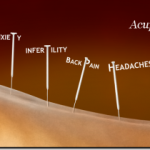Regardless of your health complaint nutrition plays a vital role. For years nutrition has formed the back bone of health-care. Hunting for and gathering food consumed most of the pre-agricultural societies time and energy. Food and herbs were our first medicine, which were used to treat a large number of conditions ranging from wounds and insect bites, to infection and broken limbs.
From the earliest days of medicine it became clear that food has a medicinal effect, and that a varied diet, rich in natural ingredients, was a pre-requisite for good health. So diet became a fundamental part of most early therapies and an integral element in almost all medical systems.
For example 18th century, English sailors were given lime or lemon juice in order to prevent scurvy, a disease caused by a lack of vitamin C, which occurred as a result of long periods of time away at sea without fresh juices or vegetables. In the late 19th century naturopaths drew attention to the use of food and how nutritional elements could be used as medicine, a concept which was not new but had not been acknowledged as a therapy in its own right until that time.
Naturopaths used traditional diet and fasting to cleanse the body, and to encourage it’s ability to heal itself. As knowledge about food, it’s make up and it’s effect on the body became greater and as biochemistry developed, the first nutritional specialists undertook to treat specific ailments and symptoms with food.
By the middle of the 20th century, scientists had put together a profile of proteins , carbohydrates, fats, vitamins and minerals, which are essential to life and to health. More than 40 nutrients were discovered, including 13 vitamins. It was found that minerals were needed for healthy body functions and a new understanding of the body and its bio-chemistry fed the growing interest on the subject.
In the 1960s Stanford chemistry professor Linus Pauling published a paper in the journal “Science”. He talked about creating the best environment in the mind by supplying the right concentration of certain bio-chemical’s such as vitamins. He named the term orthomolecular. The now controversial fields of orthomolecular psychiatry and orthomolecular of medicine were then defined, and doctors began to treat patients with special diets and supplements, which were prescribed according to individual symptoms, health problems and special needs. While conventional doctors basically ignored the role nutrition plays (nutrition is barely covered in medical school).
The term ‘Macrobiotics’ comes from the Greek words Makros, which means ‘large’ and ‘biokos’ which means ‘life’, and macrobiotics is based on the fundamental belief everyone should be healthy enough to enjoy life to the full.
Macrobiotics has a rich and lively heritage, which originated in early Tibet and China, where the early philosophy was largely inspired by 3 books ‘The Nei Ching’ The ‘I ching’ and the Tao Te Ching. The overwhelming emphasis of these books was diet, seasonally and individually adjusted. Remedies and first aid were drawn from Japanese folk medicine and practical guidelines were drawn from the Nei Ching- a comprehensive study of anatomy, physiology and diagnosis. This book also held a cosmological view of human beings, derived from the major world religions.
So what is nutritional therapy.
Nutritional therapy means using diet to treat and prevent illness, and to restore the body to a natural, healthy equilibrium. It is believed that sub-clinical deficiencies are responsible for much of the disease and weakness in the body. These are in fact vitamin and mineral deficiencies which are too slight to produce obvious deficiency diseases, such as scurvy or anemia, but which are enough to reduce the bodies ability to function efficiently. These minor deficiencies can often start with niggling and annoying symptoms which may not, on their own, be enough for most people to seek medical attention. We have today come to accept many of these symptoms as just part of our day to day stressful living. Problems like fatigue, susceptibility to colds and other viruses, skin ailments and lethargy are common symptoms of nutritional sub-clinical deficiency, experienced by most of us at some time.
One of the problems is that the diet of the modern western world fails to provide adequate nutrition for people in general. In fact it can contribute not only to ill health but to obesity, heart disease, cancer, digestive disorders, premature aging, and in many cases death. The western world is overfed but under nourished and although food is plentiful, it is often devoid of any nutritional value. Over the past few years research has indicated that many health conditions are caused by allergies or intolerance to various kinds of foods, but that certain foods have therapeutic properties. For example, some foods are known to aid digestion, reduce inflammation or mucus production, and many conditions such as asthma or eczema can be treated almost entirely by changing the diet. Similarly, rheumatism and arthritis sufferers can reduce the frequency of attacks or clear their conditions by changing the food they eat.
A healthy diet is one in which the food you eat contains all the nutrients needed by the body to exist.
The modern world has also placed new stresses on our bodies, exposing them to environmental and psychological demands which did not exist even 2 decades ago. This means that our bodies are often depleted of protective and important nutrients, which result in ill health plus a variety of other common ailments.
In an ideal world it should be possible to get all of the nutritional elements that we need from a balanced diet, but with intensive farming methods, pesticides, preservatives, additives and hormones, our diets are often far less nutritious than they appear. The soil is no longer as rich with minerals as it used to be, and vegetables and fruit grown in it are therefor correspondingly less nutritious. Cattle grazing on the land reap much less nutritional value from the grass because it was grown from depleted soil. Also tobacco, alcohol, drugs, stress, environmental pollution and various additives all help to rob the body of the nutrients it needs, so even a healthy individual can suffer from day to day living in the modern world. Today as manufacturers and food producers strive to make food last longer they now contain a mixture of; Colourants, preservatives, flavourings, emulsifiers and polyphosphates. Contaminants from agriculture; antibiotics and growth hormones, industrial contaminants and also radioactive contamination.
Nutritional therapy is a sophisticated system of healthcare, which depends on an increasingly broad-based knowledge of bio-chemistry, physiology and nutritional knowledge to address the health needs of the individual. There are three basic diagnoses which are made by the nutritional therapist, and these are: allergy (or intolerance) to food, nutritional deficiencies (often sub-clinical) and finally toxic overload.
Food allergies
A food allergy can be caused by almost any type of food and common symptoms include, nausea, vomiting and diarrhea. The most common allergens are dairy produce, nuts, eggs, yeast, shellfish, wheat flour, citrus fruit and artificial colourings. Many children are affected by food additives, especially tartrazine and benzoate, which cause hyperactivity and other behavioural problems, some common foods you can be allergic to are: Gluten, tea, seafood, tomatoes, coffee, bananas, dairy, and animal fats, yeast, oranges, peppers, eggs, rye, cheese, and potatoes, alcohol, onions, garlic, strawberries, pineapple, tap water, wine, oats, chocolate, rice pork and soy.
Nutritional deficiencies.
Few people show signs of vitamin or mineral deficiency, such as scurvy, but is it known that many people suffer slight shortages in the body. These can be tested for by symptom analysis, hair mineral analysis, touch for health muscle testing and perhaps blood or / and sweat analysis.
Toxic overload.
Toxic overload is identified by a nutritionist analyzing the combination of the symptoms experienced and the normal lifestyle of the sufferer. Toxins are effectively poisons which can be in our food, or are created within our bodies by intestinal bacteria or as ordinary waste products of metabolism.
A healthy diet.
The western diet is generally high in cholesterol and fats, especially saturated and trans fats and low in fiber and high in refined sugars and animal products. Diets which are low in fat and cholesterol, but high in dietary fiber, fruits and vegetables are healthier and provide much more energy. Ailments such as odd aches and pains, headaches, and some types of diabetes, immune deficiencies, skin problems and digestive disorders all disappear when the right diet is followed. A healthy diet is one in which the food you eat contains all the nutrients needed by the body for it to grow, heal and to function normally on a day to day basis. A balanced diet provides energy and allows you to function at your optimum level, free from disease and malaise. There are 3 essential nutrient food groups: proteins, carbohydrates, fats plus minerals and vitamins. You also need water which is found in most foods and which makes up a large proportion of our body.
There are hundreds of books all about diet, many of these books promise miracles if you follow them, however these books are not teaching you how to eat for health and generally when people buy books on diet, it’s generally all about weight loss. If you follow the instruction in these books you may loose weight and once you have achieved your desired weight lose, you generally return to the way you have always eaten and stack the weight back on and then some, these diets aren’t called yoyo diets for nothing. So the question is how should you eat, what is the best way.
Choosing fresh and wholesome foods.
Fresh fruits vegetables and salads should form part of your daily diet and ideally fresh meat and fish should be used instead of packaged or frozen foods. Many of the processes used to preserve food, such as canning and freezing, result in a lose of valuable nutrients. Whenever possible, try to choose local and fresh produce, since long storage or periods of travelling can cause nutrients to be lost. It is also essential that you read the labels of tined and packaged foods carefully. Products which contain flavourings, preservatives and colouring have been linked to many health problems.
A balanced diet is based on eating whole foods, which means unrefined food. With refined foods certain parts are removed during the refining process and in this way vital nutrients and natural fiber are lost. The result is a product with reduced nutritional value, and one which is less easily digested. Since fiber aids the process of elimination and digestion. Generally speaking whatever your age, you should have 2 servings per day of protein (small) and preferably nuts, fish or fresh lean meat, eggs, (poached) beans, peas or lentils. Four servings of complex carbohydrates such as Brown or Black rice (not white) potatoes, muesli, and 5 servings of fresh fruit, vegetables or salads and as little fat as possible. Now while this may sound complicated let me put it another way, if you have breakfast have some natural yogurt with fresh fruit or a good quality porridge the a fruit compot added and all meals should be 80% vegetables and / or salad and the balance can be protein, water should be part of your diet and ideally consumed throughout the day at around 2ltrs per day (not tap water). Children, pregnant women and breastfeeding mothers may need more fats than other groups (essential fats).
What problems can eating properly help with.
Nutrition can help with almost anything, since food is the basis and the fuel of all chemical processes which take place in the body. Therefore, almost all types of ill-health can stem from missing or insufficient nutritional elements within the diet. Proper nutrition can treat such conditions as rheumatism and arthritis, high blood pressure, fatigue, constipation and other digestive disorders, the healing and recuperation process following injury or surgery, skin problems and many psychological and behavioural problems, neuralgia, osteoporosis, PMT, post natal illness, pregnancy problems, reduced immunity, stress and viruses may also respond to improved nutritional intake, cancer and the list goes on. In effect however, all the body systems will be improved by a healthy diet. In a fit state you are much more likely to fight off infection and deal efficiently with any health problems or injury.
The benefits of eating healthy with a balanced diet are profound. A large proportion of today’s ailments are caused by either food allergies or food intolerancies if these can be avoided many illnesses can be prevented.
So what next.
Regardless of how bad your health condition is it can be vastly improved by eating a healthy diet and cutting out harmful processed foods, so start by reading up on the subject of nutrition and educate yourself on health through nutrition. The internet is full of great websites with wonderful easy to prepare meals and some books I would recommend are: The pH Miracle and The juice Fasting Bible, these books can be easily found either on fishpond.com.au or amazon.com.
Regardless of your medically diagnosed condition natural medicine has something to offer either as a stand alone treatment or as complementary treatment along side orthodox treatment.
The Acu-Care Naturopathic clinic is suitably located for many of Perth’s suburbs and is particularly handy for; Belmont, south perth, vic park, lathlain, Carlisle, kewdale, rivervale, redcliffe, burswood and cloverdale.
To find out more about acupuncture call or text to 0410094602 or better still make an appointment today.







